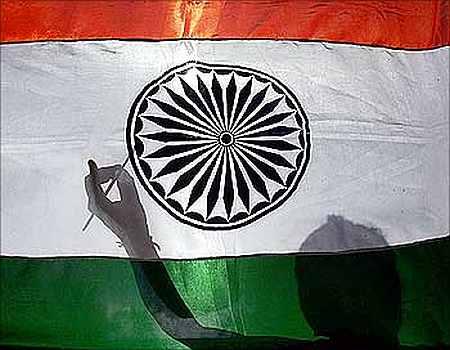
Global rating agency Standard & Poor's on Monday cautioned India might become the first BRIC (Brazil, Russia, India and China) country to lose its investment-grade rating, unless growth issues were addressed immediately.
The credit rating agency cited slowing GDP growth and political roadblocks in economic policy making as some of the factors that could lead to such an action.
"Setbacks or reversals in India's path towards a more liberal economy could hurt its long-term growth prospects and, therefore, its credit quality," said Standard & Poor's credit analyst Joydeep Mukerji, in a report titled 'Will India be the first fallen BRIC angel?'
. . .
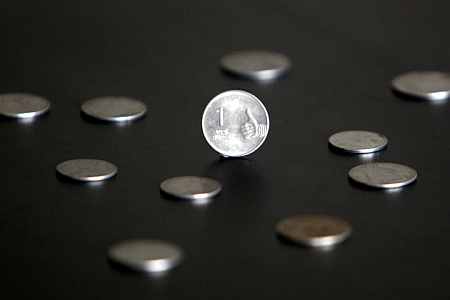
Though the markets reacted adversely (the stock markets slipped into the negative territory and the rupee skidded to 55.82 a dollar from 55.45 earlier), the finance ministry continued to be in a denial mode.
In a statement, Finance Minister Pranab Mukherjee said: "Between April 2012 and now, there are no significant events to indicate that the economy's vulnerability to shocks has increased, though growth numbers for the fourth quarter 2011-12 have come below expectations."
Leading players agreed and said there was nothing fundamentally wrong with the economy.
"Our domestic economy, which accounts for more than 70 per cent of total demand, remains robust," HDFC Vice-Chairman and CEO Keki Mistry said.
. . .

He, however, said macro issues remained a big concern and the government must take quick policy decisions to avoid a downgrade.
"We also need to cut our fiscal deficit, or there will be a downgrade," he added.
Some economists said S&P was not saying anything new.
Siddhartha Sanyal, chief India Economist, Barclays Capital, said while the concerns were valid, S&P reiterated the concerns it had flagged in April and markets seemed to have over-reacted to it.
"But the report doesn't suggest there will be an immediate downgrade.
"However, given the current extreme negativity, every new negative news/analysis can weigh further on sentiment," he said.
. . .
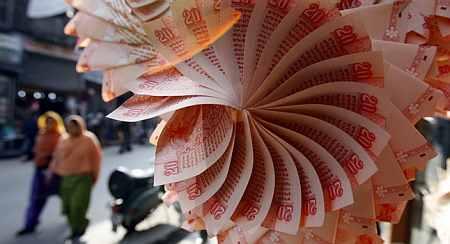
India's current sovereign rating is BBB-, the lowest investment grade rating.
And, in April, S&P had lowered the rating outlook to negative from stable, due to lower GDP growth prospects and the risk that the country's external liquidity and fiscal flexibility might erode.
The negative outlook also reflected the risk that policy makers might be unable to react to economic shocks quickly and decisively to maintain the country's current creditworthiness.
India has the lowest S&P rating among all BRIC nations and is the only one with a negative outlook from the rating agency.
The report said the government's reaction to potentially slower growth and greater vulnerability to economic shocks would largely determine whether the country could maintain an investment-grade rating.
. . .
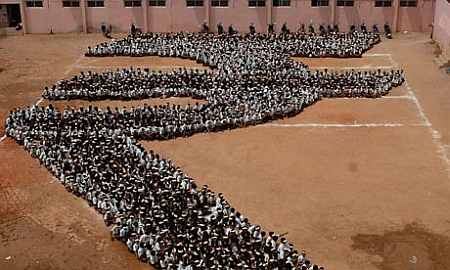
Samiran Chakraborty, chief economist and head of research, Standard Chartered Bank, India, said the report explained in detail all the macro challenges that India was facing and gave a thorough perspective on why S&P had in April changed the outlook to negative.
"Getting growth back on track assumes more importance than ever and a pro-growth policy stance will be critical," he said.
The foreign bank estimates the country's GDP to expand by 6.2 per cent in the current financial year.
S&P emphasised that policy makers should focus on expediting the reform process, rather than going back in the protectionist mode, to boost growth.
. . .
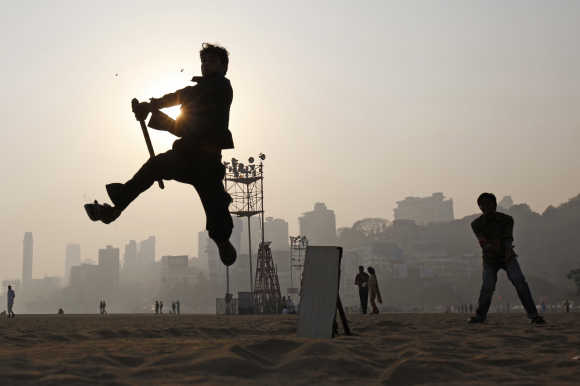
"The combination of a weakening political context for further reform, along with an economic deceleration, raises the risk that the government may take modest steps backward, away from economic liberalisation, in the event of unexpected economic shocks.
"Such potential backward steps could reverse India's liberalisation of the external sector and the financial sector," said Mukerji.
The warning from S&P's comes at a time when India is plagued with twin deficits -- fiscal and current account -- amid slowing GDP growth, which is experiencing significant deviation from potential.
The GDP growth for the January-March quarter was 5.3 per cent, the lowest in nine years.